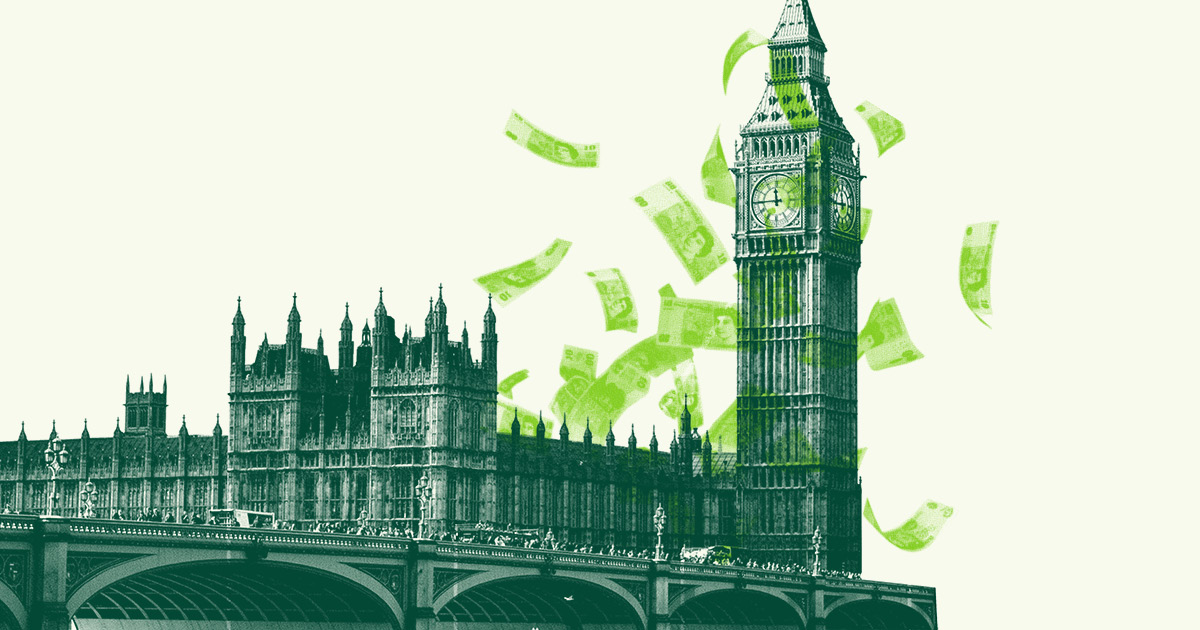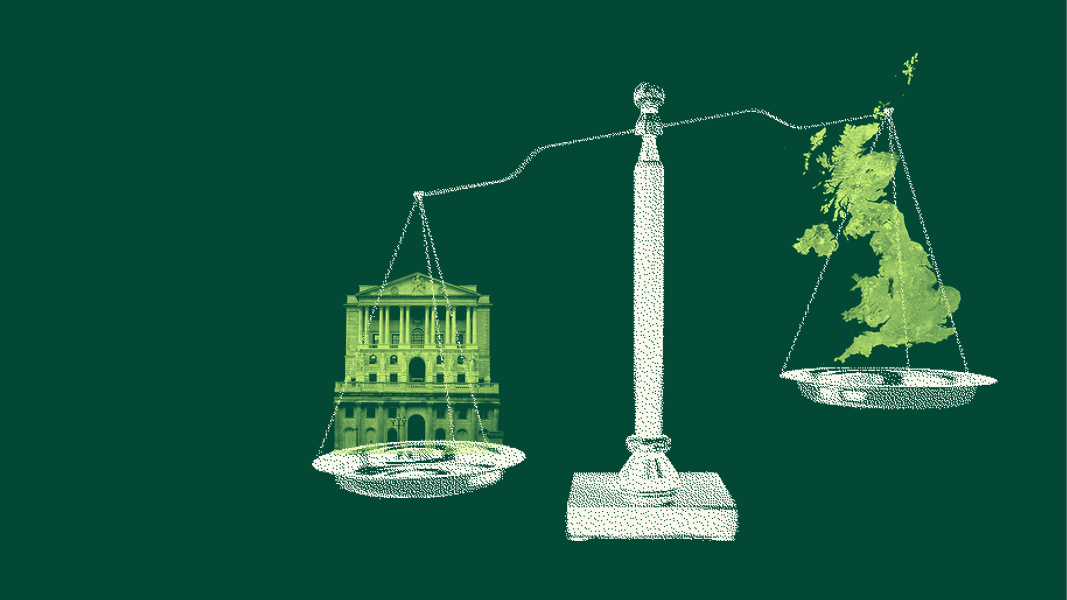
What happened to inequality in 2024?
2024 was an eventful year, and that wasn’t always a good thing. We know what we need to solve inequality in 2024 – community wealth-building, taxation of the super-rich, democratic ownership, action on the climate crisis, a fair political system, and tackling corporate profiteering – and the UK could do it now if our politicians had the courage.
However, 2024 was a year that the movement for equality pushed forward. The change in the UK’s government has opened new opportunities, while the international movement for justice has achieved historic wins like the move towards a global tax on the super rich at the G20.
We aim to keep the momentum going in 2025, turning the opportunities won last year into real change. We’ve begun training community reporters across the country, launched new research into inequality’s impact, and expanded our circle of allies in politics.
Our goal this year is to use that research, the work of the community reporters, and our growing movement to reimagine how our society and economy works, spread that vision to as many people as possible, and start changing our system to get there.
Organising Together
100+
Interviews held
36
Community Reporters trained
2m+
People covered by local campaigns
Despite July’s general election sucking up a lot of energy and time for many local activists, our work on the ground in cities like Birmingham, London, and Derby grew in 2024.
Birmingham has had some difficult years, facing enormous financial pressures from decades of deep cuts from the national government and the fallout of an equal pay settlement that pushed the local government into bankruptcy. Our tireless Project Officer Emma Marks has led community campaigns and coalitions across the region to fight the resulting austerity economics and build a vision of a more equal Birmingham.
Part of that has been changing the way decision makers understand injustice and inequality, which has had a lasting impact. In 2024, Birmingham City Council began consulting on their corporate plan in a new way, going to tenants meetings, food banks and warm spaces to listen to people. After we led community reporter training and produced films about inequality with Birmingham’s local government officers, they’re now launching their own community reporting projects for public engagement on council projects. This is a big step forward for local government planning: it means that instead of relying on unequal access to power, decisions are being made by speaking to people who would normally be voiceless.
Emma sadly left this year, moving into work making academia more equal and accessible, but we were delighted to welcome Charlie McNeill to continue the work in Birmingham into 2025. With networks like Economic Justice Brum planning to expand their reach into more Birmingham institutions, Charlie is already building and launching projects to better understand how inequality and poverty is experienced differently.
We also begun working with Vanessa Boon on the Derby vs Poverty movement that has campaigned in incredibly creative ways, from leading a protest of dolls to holding workshops across the city.
“Some hope to build upon! It’s amazing how disarming the creative approach can be, fostering a different, less defensive reaction. Hopefully we can encourage some good practices in this more receptive atmosphere.”
Vanessa Boone



“Thanks for teaching me this method. I’m setting up a non-profit and I’m going to use storygathering in the set up stage to ensure the service we offer is co-produced and meets the needs of the people we are working for and with.“
Wealth Inequalities Project Participant
Community Reporting has been a huge area of focus for 2024, training members of a community in techniques that help them record the stories of those around them in their own words. These filmed or reported stories feature peoples lived experiences, how they feel about those experiences, and what they hope or fear from the future with minimal interpretation from outsiders. According to Caroline Tosal-Suprun, our Participation and Engagement Manager, we’ve captured stories about inequality that range from economic injustice, wealth inequality in racialised communities, structural inequality and how that manifests, and the hopes and fears of young people.
Young people joined us to lead the Reconstructing the Social Contract project, gathering evidence about the way young people understand society and responsibility after growing up in our unravelling social fabric. The resulting films have offered insight for charities, youth organisations, and policy-makers, as well as being nominated for a Smiley Charity Film Award! The young people involved have gone on to create discussion guides, briefings, and, particularly, recommendations to begin restoring a social contract designed for and by young people. These range from more support for care leavers and urgent action on the climate crisis to creating new spaces for activism and sharing power.
“That’s over 100 people from different backgrounds across the UK who normally would not have a voice in research, advocacy or campaigning on the issues that affect them daily.”
Caroline Tosal-Suprun, Equality Trust Participation and Engagement Manager
Pioneering Research
7
new research reports launched
15 yrs
of the Spirit Level anniversary
1000+
Lectures on the Spirit Level
In 2009, The Spirit Level was published, arguing that more equal societies work better for everyone. Fifteen years on, the argument is more urgent than ever and inequality has gotten worse. Together with the original authors Professors Kate Pickett and Richard Wilkinson, we launched an updated version with brand new measures of environmental and democratic inequality. The updated version was covered in America, is already being replicated in published books, and is currently being translated into Japanese.
Led by our researcher Aini Gauhar and BLAM, we also launched a pioneering new report into the way our mental health system fails racialised people. With Black people 40% more likely to access mental health care through the criminal justice system, our system is monstrously unequal. Together with experts and lived experience, we set out how an anti-racist system of therapy could work. Health inequalities were a theme this year, with a prescient report into health inequalities and tech from guest researcher Daniel Guest finding similarly that our unequal medical systems were at risk of entrenching further if we roll out new tech without tackling inequality.
“I think we have changed the way people think and feel about the economy with this process”
Caroline Tosal-Suprun, Equality Trust Participation and Engagement Manager
Our report into the way our migration system is designed to cause destitution, led by Rob Donnelly and written with the APPGs on Migration and Poverty, conclusively showed the cruelty of our migration policies. Our calls for urgent change have been echoed by others, from MPs to the Resolution Foundation.
Our work this year has been cited in research into pay gaps, arguments for a more progressive economy, the British Medical Journal, articles about child poverty, parliamentary debates, reports from think tanks, viral videos about capitalism and about the state of the Labour Party, academic projects, and dozens of articles about the state of inequality.
Halls of Power
14k
petition signatures
49
MPs looking at inequality
1700
letters sent
The election of a new Labour government in July both did and didn’t change the fight against inequality in 2024. Our political system has enormous inequality baked in, making it difficult for politicians to ever create the radical change we need to meet the crisis. However, the election brought in hundreds of new MPs across the UK’s progressive parties and a government that thinks about the issue of inequality in a different way to the previous one.
That allowed us to launch a new effort to inform MPs, new and old, about the extent of our inequality crisis, as well as build political support for grassroots visions of a more equal society. We launched the Spirit Level at 15 in parliament, making new allies across the UK’s political parties.



This helped lead to the relaunch of the All-Party Parliamentary Group on Poverty as the APPG on Poverty and Inequality, recruiting a new group of MPs to work on the ways inequality drives poverty.
We’ve been working towards commencing the socio-economic duty, a piece of the Equality Act 2010 that could give campaigners for equality a valuable tool. We’ve been lobbying the Labour Party in opposition and government to not just commence the duty, but to do it in a meaningful way that begins changing how all decisions are made at every level of government. That’s why we’ve been building coalitions for this campaign with the General Federation of Trade Unions and their Make Equality Real campaign and with the 1forEquality coalition. This has included workshops with the civil service, meetings with Secretary of State for Women and Equalities Anneliese Dodds, petitions, letters, and more. The result is that the socio-economic duty was in Labour’s manifesto along with an expanded Race Equality Act, and that real plans are being made to finally commence it.
“The first workshop on Socio-Economic Rights of the Voluntary Sector and Residents was highly informative, with a well-balanced set of activities that were appreciated by participants, even those who lacked English proficiency or confidence. While the residents had heard of The Equality Act before, the workshop helped them understand how socio-economic duties could lead to improved outcomes for people facing different socio-economic challenges.“
Southall Community Alliance
“You made it much more about actions and less about monitoring, which I found inspiring”
Westminster Council participant in Equality Trust training
We’ve also continued to push for adoption of the socio-economic duty on a local level in councils around London thanks to the work of our London Organiser Maeve Slattery. Alongside community campaigns like Southall Community Alliance and using films from our Reconstructing the Social Contract project with young people, we’ve built a wide network of Londoners working to make their local areas more equal. Ealing Council has made the socio-economic duty a new priority thanks to these campaigns, helping change ripple out further!
Now Tell Us:
Inequality in Your Inbox?
Get the news that matters direct to your inbox every week
by signing up for our newsletter


